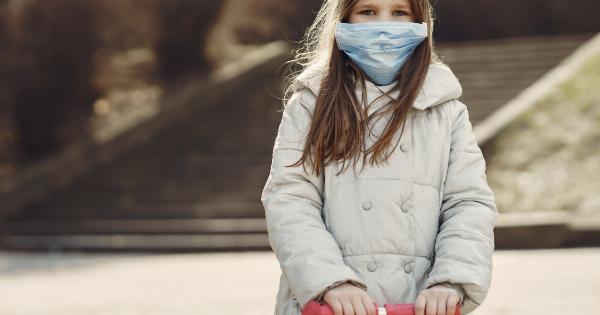Viral respiratory infections, such as the common cold and flu, can be easily spread from person to person through coughing, sneezing, or close contact. These infections can cause symptoms like cough, sore throat, runny nose, fever, and fatigue.
While it may not be possible to completely avoid contracting a respiratory infection, there are several simple steps you can take to reduce your risk of getting sick. Here are 10 effective measures you can follow to prevent viral respiratory infections:.
1. Wash Your Hands Frequently
One of the simplest and most effective ways to prevent respiratory infections is to wash your hands frequently with soap and water. Proper handwashing can help remove viruses and bacteria from your hands, reducing the chance of infection.
Be sure to wash your hands for at least 20 seconds, especially before eating, after using the restroom, and after coughing or sneezing.
2. Use Hand Sanitizer
If soap and water are not readily available, using an alcohol-based hand sanitizer can be a convenient alternative. Look for a sanitizer that contains at least 60% alcohol and rub it over all surfaces of your hands until dry.
Hand sanitizers are particularly useful when you are out in public or in situations where handwashing facilities are limited.
3. Cover Your Mouth and Nose
When coughing or sneezing, always cover your mouth and nose with a tissue or your elbow, not your hands. This helps prevent the spread of respiratory droplets that may contain viruses. Dispose of used tissues promptly and wash your hands afterward.
If a tissue is not available, cough or sneeze into your elbow to prevent the droplets from spreading in the air.
4. Avoid Close Contact with Sick Individuals
Avoid close contact with individuals who are sick, especially if they have symptoms of a respiratory infection. Viruses can spread easily through close contact, so it is best to maintain some distance from someone who is visibly ill.
If you have a respiratory infection, it is equally important to stay at home and limit contact with others to prevent the spread of the infection.
5. Practice Respiratory Etiquette
Practice good respiratory etiquette to minimize the risk of respiratory infections. Apart from covering your mouth and nose while coughing or sneezing, avoid touching your face, especially your eyes, nose, and mouth.
Viruses can enter your body through these entry points, so minimizing contact with them can help reduce the risk of infection.
6. Keep Your Living Environment Clean
Regularly clean and disinfect frequently-touched surfaces, such as doorknobs, light switches, remote controls, and countertops.
Viruses can survive on surfaces for several hours or even days, so maintaining cleanliness can help minimize your risk of exposure. Use disinfectants that are effective against viruses and follow the instructions on the product labels.
7. Get Vaccinated
Getting vaccinated against viral respiratory infections, such as the flu, is an essential preventive measure. Vaccines can help your body build immunity against specific viruses, reducing the likelihood and severity of infection.
Consult with your healthcare provider to ensure you are up to date with recommended vaccinations, especially during flu season.
8. Practice Good Respiratory Health
Take care of your respiratory health by adopting healthy habits. Stay physically active, maintain a balanced diet, and drink plenty of fluids to keep your immune system strong.
Quit smoking and avoid exposure to secondhand smoke, as smoking can weaken your respiratory system and make you more susceptible to infections.
9. Stay Informed and Follow Guidelines
Stay informed about the latest guidelines and recommendations from reputable health authorities regarding respiratory infections. Keep updated with information about outbreaks, preventive measures, and treatment strategies.
Following the guidelines provided by experts can help you make informed decisions and take appropriate precautions.
10. Practice Self-Care and Rest
Lastly, practice self-care and rest when needed. Get enough sleep to support a healthy immune system and manage stress effectively. Chronic stress can weaken your immune response, making you more susceptible to infections.
Take care of your overall well-being to strengthen your body’s natural defense mechanisms.






























